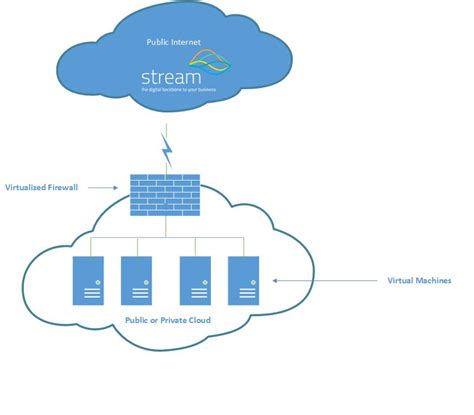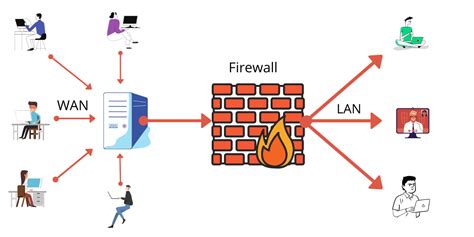cloud based firewall
Cloud-Based Firewall: Fortifying Your Digital Perimeter
In today’s interconnected world, cybersecurity is paramount. With the ever-expanding threat landscape, protecting your organization’s digital assets has become a top priority. One crucial component of a robust cybersecurity strategy is a firewall, which acts as the gatekeeper between your internal network and the vast, often perilous landscape of the internet. In this article, we will explore the concept of a cloud-based firewall, its advantages, real-world applications, and why it should be an integral part of your cybersecurity infrastructure.
Understanding the Cloud-Based Firewall
A cloud-based firewall, also known as a cloud firewall or cloud-native firewall, is a network security solution that leverages cloud computing resources to deliver firewall capabilities. Unlike traditional firewalls that are hardware-based and often located on-premises, cloud-based firewalls operate in the cloud, offering numerous benefits:
- Scalability: Cloud-based firewalls can easily scale up or down to accommodate changing network traffic loads. This flexibility ensures that your firewall can handle increasing volumes of data without the need for hardware upgrades.
- Cost-Effectiveness: With no physical hardware to purchase and maintain, cloud-based firewalls can be more cost-effective in the long run. Organizations can avoid upfront capital expenses and instead opt for a subscription-based model.
- Global Reach: Cloud-based firewalls can be deployed across multiple geographic locations, providing comprehensive protection for organizations with a global presence.

Advantages of Cloud-Based Firewalls
Cloud-based firewalls offer a range of advantages that make them a compelling choice for modern cybersecurity strategies. Let’s delve deeper into these key benefits:
1. Enhanced Security
Security is the foremost concern in the digital age, and cloud-based firewalls are designed with this in mind. They offer:
- Advanced Threat Detection: Cloud-based firewalls can employ sophisticated threat detection mechanisms, such as machine learning and AI algorithms, to identify and mitigate emerging threats.
- Real-time Updates: Cloud firewalls receive regular updates and threat intelligence feeds, ensuring that they are always prepared to defend against the latest cyber threats.

2. High Availability
Cloud-based firewalls offer high availability, ensuring that your network is protected around the clock. Here’s how:
- Redundancy: These firewalls often have multiple data centers and redundant infrastructure, minimizing downtime due to hardware failures.
- Global Distribution: Cloud firewalls can be strategically located in data centers worldwide, reducing latency and ensuring that traffic is filtered as close to the source as possible.

3. Simplified Management
Managing a traditional on-premises firewall can be complex and time-consuming. Cloud-based firewalls simplify management in several ways:
- Centralized Control: Administrators can manage and configure cloud firewalls from a centralized console, making it easier to enforce security policies consistently.
- Automation: Many cloud firewalls offer automation capabilities, allowing you to set up rules and responses based on predefined conditions, reducing the need for manual intervention.

Real-World Applications
Cloud-based firewalls find applications across various industries and organizations. Here are a few real-world scenarios where they play a pivotal role:
1. E-Commerce
Online retailers rely on cloud-based firewalls to protect sensitive customer data and ensure the secure processing of transactions. These firewalls can detect and prevent credit card fraud, DDoS attacks, and other threats that could disrupt online shopping experiences.

2. Healthcare
In the healthcare sector, protecting patient records and complying with stringent data privacy regulations are paramount. Cloud-based firewalls help healthcare organizations maintain the confidentiality and integrity of patient data, safeguarding against cyberattacks that could compromise sensitive information.

3. Financial Services
Financial institutions handle vast amounts of financial data and are prime targets for cybercriminals. Cloud-based firewalls enable banks and financial firms to fortify their digital perimeters, ensuring secure online banking, protecting against fraud, and maintaining customer trust.

Statistics on Cloud-Based Firewall Adoption
Let’s take a look at some statistics that underscore the growing importance of cloud-based firewalls in the cybersecurity landscape:
- According to Gartner: By 2025, 99% of firewall deployments will be cloud-based or virtualized.
- A survey by Cisco: 68% of organizations are actively using or considering cloud-based firewalls for their security needs.
- Cloud Security Alliance (CSA): 71% of organizations believe that cloud-based firewalls are essential for securing cloud deployments.

Conclusion
As the digital landscape continues to evolve, so do the threats that organizations face. In this context, a cloud-based firewall emerges as a powerful and flexible solution for safeguarding your digital assets. With advantages such as enhanced security, high availability, and simplified management, it offers a compelling case for its adoption.
Real-world applications across e-commerce, healthcare, and financial services demonstrate its versatility and importance across various industries. Moreover, the statistics clearly indicate that cloud-based firewalls are on the rise, with an overwhelming majority of organizations recognizing their significance.
Therefore, if you’re looking to bolster your organization’s cybersecurity posture and protect your digital perimeter effectively, embracing a cloud-based firewall should be a top priority.
Q&A
Q1. Are cloud-based firewalls suitable for small businesses?
Yes, cloud-based firewalls are suitable for small businesses. They offer cost-effective solutions with scalability, allowing small businesses to adapt to their specific needs without significant upfront investments in hardware.
Q2. How do cloud-based firewalls compare to traditional firewalls?
Cloud-based firewalls offer advantages in terms of scalability, cost-effectiveness, and simplified management. They are particularly well-suited for organizations with dynamic or global operations. Traditional firewalls, on the other hand, may still be suitable for smaller, more static environments.
Q3. Can cloud-based firewalls protect against all types of cyber threats?
While cloud-based firewalls are highly effective against a wide range of cyber threats, no security solution can provide absolute protection. They excel in threat detection and prevention but should be part of a broader cybersecurity strategy that includes other layers of defense.
